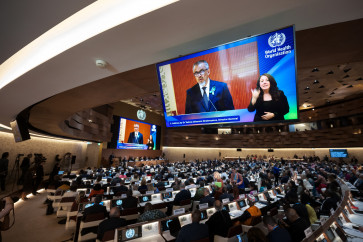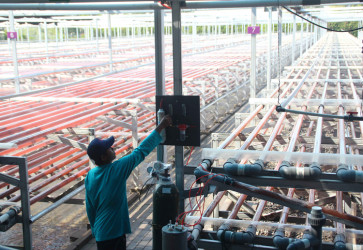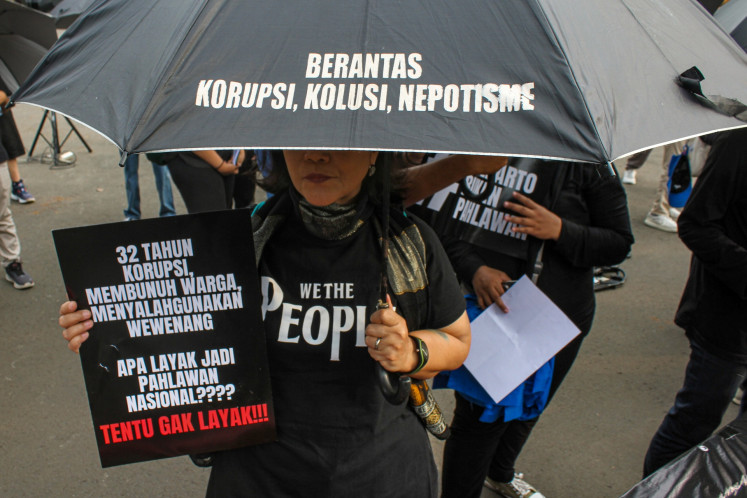Sustainable palm oil on UN agenda
The development program for socially, environmentally and economically sustainable palm oil is poised to accelerate following the signing of a cooperation agreement between the United Nations Environment Programme (UNEP) and the Roundtable on Sustainable Palm Oil (RSPO)
Change text size
Gift Premium Articles
to Anyone

T
he development program for socially, environmentally and economically sustainable palm oil is poised to accelerate following the signing of a cooperation agreement between the United Nations Environment Programme (UNEP) and the Roundtable on Sustainable Palm Oil (RSPO).
UNEP senior executive Douglas Cress noted on Wednesday that the cooperation should provide a good model for the sustainable development of other farm commodities as RSPO had engaged all representatives from across the spectrum of the palm oil supply-chain.
He added that the UNEP-RSPO engagement aimed to raise global awareness of sustainable palm oil and generate market demand for this important commodity, which had the potential to play a key role in preserving the earth's biodiversity.
Palm oil is the top-selling vegetable oil in the world and is found in 50 percent of all consumer goods. However, conventional, reckless production methods ' while offering huge economic and social opportunities to exporting nations ' are highly unsustainable and can cause serious damage to the environment.
Indonesia supplies around 31 million metric tons, or 50 percent, of the global palm oil output, while Malaysia supplies around 40 percent; Africa and Latin America provide the remaining 10 percent.
'This program will surely support the achievement of sustainable development goals that UNEP has formulated,' Cress told the RSPO 12th annual conference.
Participants at the conference hoped that UNEP could contribute to creating synergy between the RSPO scheme and the local Indonesia Sustainable Palm Oil (ISPO) and Malaysian Sustainable Palm Oil (MSPO) schemes. After all, the principles and criteria assessed for certified sustainable palm oil under the three schemes were similar, all complying with globally agreed environmental standards that relate to social, environmental and economic best practices.
The principles of sustainable management promoted, assessed and audited under the three schemes in their respective certification processes cover such elements as transparency, legal and regulatory compliance, best production practices, environmental responsibility and commitments to local community development.
The RSPO, which was founded in 2004, counts over 1,800 members and is the world's largest sustainable palm oil certification program, which, according to its chairman Biswaranjan Sen, now covered 18 percent of global palm oil output, estimated at 65 million tons.
The signing of this cooperation represents an opportunity to link sustainable palm oil to UNEP's Sustainable Consumption and Production Program,' said RSPO Secretary General Darrel Webber.
The cooperation commits both UNEP and the RSPO to facilitating collaboration with regard to the transformation of markets to make sustainable palm oil the norm because at present only about 50 percent of sustainably produced palm oil has been taken up by the market, Webber added.
However, several European countries, including the UK, France, Germany, Sweden, the Netherlands, Norway, Denmark and Belgium, and major corporations such as Nestle, Unilever, Carrefour and Johnson & Johnson, have committed to 100 percent RSPO-certified sustainable palm oil in 2015.
Certification schemes for global commodities are seen by green campaigners as key to adopting more sustainable production and consumption patterns, and sustainable palm oil is considered a viable alternative to conventional production by producers and consumers. (Vin)









